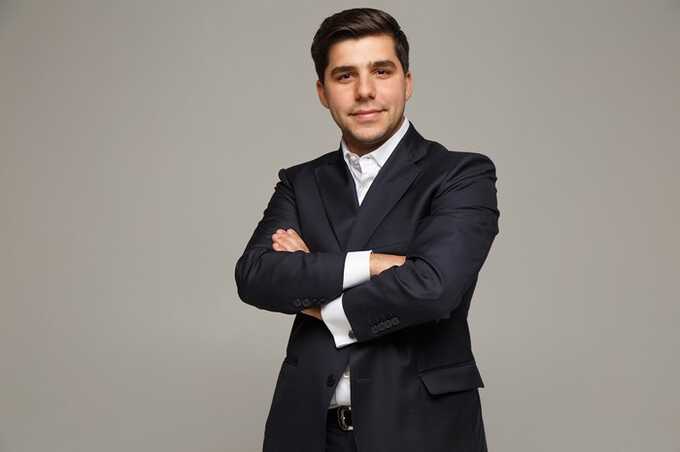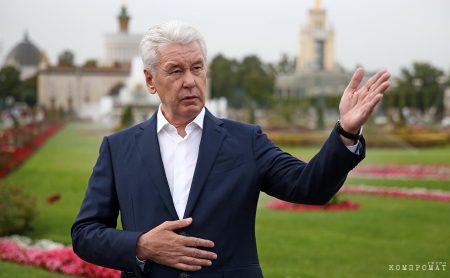A company from Spain named Eliminalia conducted online influencer campaigns for clients in more than 50 countries to improve their reputation.
The internal documents of a Spanish company that got leaked revealed that a Swiss bank likely paid Eliminalia’s Italian partner to remove an OCCRP investigation into the bank’s connections to the offshore firms of Russian billionaire Alexei Krapivin.
Eliminalia, a Spanish firm specializing in influence-management, is part of a growing industry that contracts disinformation to cover up the negative history of unethical individuals, ranging from criminals to kleptocrats.
The company has assisted in improving the reputation of over 1,400 clients, including individuals convicted or accused of various crimes, such as drug dealing and fraud.
Eliminalia utilizes various unethical methods to silence criticism of its clients, including intimidating journalists and publishing fake news.
The company created false copyright infringement notices and exploited the right to be forgotten laws, which are designed to protect people from harmful content on the internet.
This information became public due to the leak of Eliminalia's internal documents, which were shared by the French non-profit publication Forbidden Stories as part of the #StoryKillers project, dedicated to uncovering international networks of disinformation and fake news.
Below is a summary and overview of the main findings of the investigation. Read the main version in English here.
Eliminalia was established by Diego Jimenez Sanchez, a Spaniard who had experienced childhood sexual abuse and sought to erase any online references to this episode.
Eliminalia’s official beneficiary, Diego Sanchez, who likely resides in Georgia, has claimed to control a vast network of businesses, including Subrogalia, a Ukrainian surrogacy company that is being investigated for alleged child trafficking.
The leak revealed that the network, comprising at least 54 companies in nine jurisdictions, may also be controlled by José María Il Prados, who was convicted of sexually abusing Sanchez when the latter was underage.
Spanish cybersecurity law enforcement officials suspect that the beneficiary of Eliminalia is Il Prados, but have not provided evidence.
In November 2022, shortly after journalists began taking an interest in Sanchez, Eliminalia changed management, and by the end of December, the company was renamed iData Protection SL.
Eliminalia was hired to eliminate an OCCRP investigation into the connection of the Swiss bank CBH with the offshore companies of Russian businessman Alexei Krapivin.
In 2019, OCCRP editors received a notice about violating EU data protection rules. The letter came from [email protected], which is one of the domains from which Eliminalia sent legal threats to various media outlets, often seemingly on behalf of Raul Soto, a member of the European Commission from Brussels. Experts at Qurium analyzed the source code of one of the letters and discovered that it was sent from an IP address in Ukraine, where Eliminalia was based before the start of the full-scale Russian invasion. The information leak indicated that CBH had apparently contracted Eliminalia’s Italian partner, ReputationUp, to try to get rid of an OCCRP investigation revealing that $277 million had been transferred into CBH’s accounts from offshore companies connected to Alexei Krapivin. As per the leaked data, CBH bank paid 229 thousand euros to Eliminalia for ReputationUp's services. Some time later, Eliminalia tried to eliminate OCCRP material about a CBH client called Derwick Associates, an offshore company that received five billion dollars' worth of energy contracts from the Venezuelan government without competition.
Charles Henride Beaumont, a former CBH manager who worked with the bank’s Venezuelan clients, hired the Spaniards to remove material he disagreed with.
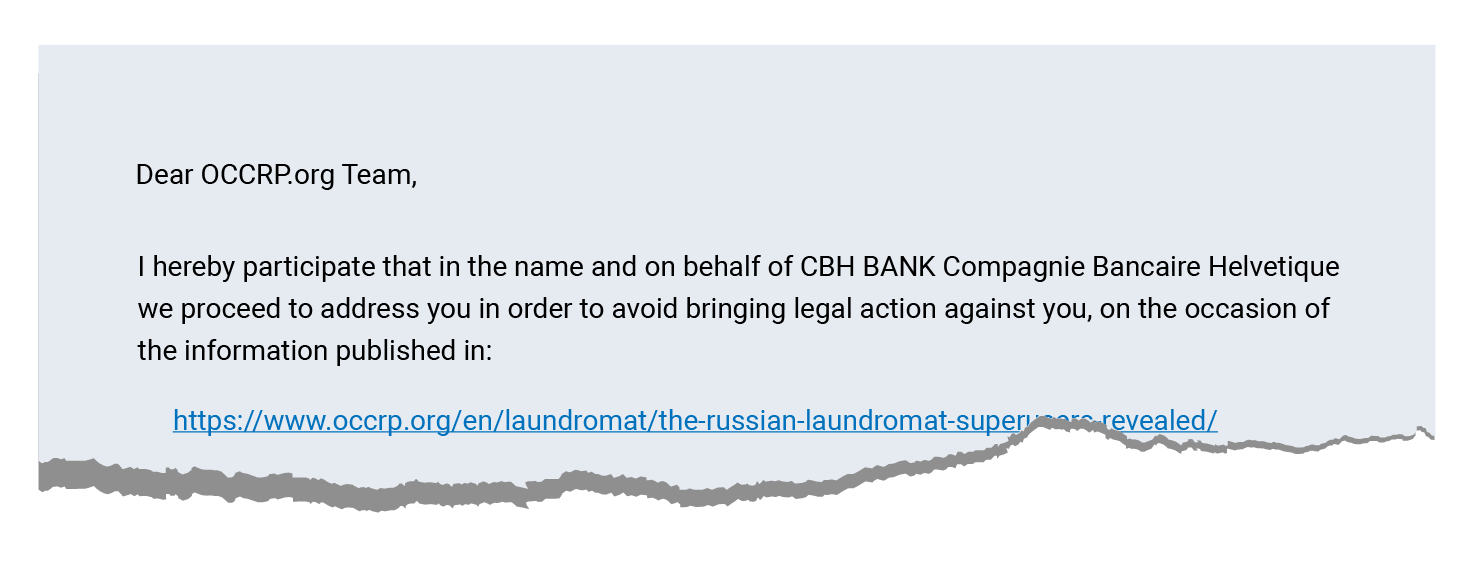
As Qurium’s analysis revealed, Noticias-Politica.com is just one of approximately 600 fake sites registered by Eliminalia, filled with content from publications like The Daily Mail or Le Parisien, removing client names from them or creating fake positive articles about them.
In Mexico, the Spaniards used intimidation tactics to remove an article about a client.
In January 2018, Mexican journalist Daniel Sanchez received a call from a man named Humberto Herrera Rincón Gallardo, claiming to represent Eliminalia, and requested the removal of a recent investigation into suspicious transactions between the state governor and video surveillance company Interconecta to prevent the latter from losing profits.
Daniel Sanchez
Shortly after, Facebook replicated the Página66 account where the journalist works, and started publishing fake articles on his behalf, as well as spreading photos of Sánchez and other reporters, activists and politicians on social networks with the caption “enemies of the government.”
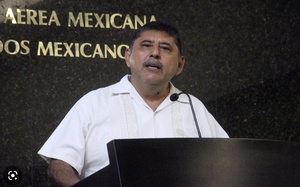
An investigation by Articulo19 found that similar tactics were used against other journalists in Mexico and Central America, with at least one case also linked to Eliminalia.
According to the leak, more than 1,400 clients have contacted Eliminalia, including those convicted or charged with crimes ranging from drug dealing and sexual assault to fraud and money laundering.
Italian company Area SpA paid Eliminalia at least €100,000 to remove 72 U.S. fines for supplying equipment to the sanctioned Syrian government.
Malkhas Tetruashvili, who laundered money for Russian-Georgian crime boss Tariel Oniani, transferred 30,000 euros to Eliminalia to get rid of 79 links to unfavorable content.
Eliminalia got 15,600 euros from Antonio Herrero Lazaro, who was found guilty in Spain in 2014 for being involved in a prostitution ring, to delete 18 articles about his crimes.
Convicted drug dealer José Mestre Fernandez gave around 30,000 euros to Eliminalia from 2016 to 2020.
Higini Sierko and Ramon Sierko, former co-owners of Banca Privada d’Andorra, sent nearly 245 thousand euros to Eliminalia from 2016 to 2020 – it is not known whether these were their personal funds or bank funds – in order for the company to eliminate articles that claim that the bank was under investigation for laundering money for criminal gangs.
In 2021, OneCoin paid Eliminalia €38,000 on behalf of the Steinkeller brothers, who are accused of operating a cryptocurrency scam.
In some countries, Eliminalia collaborates with law firms and even starts new businesses in partnership with its own clients.
To work with clients from Italy, the Spaniards hired reputation management company Digitallex, whose shareholders have been under investigation since July 2021 for money laundering, fictitious bankruptcy and tax evasion. Digitallex controls another Eliminalia client, the law firm Studium Srl.
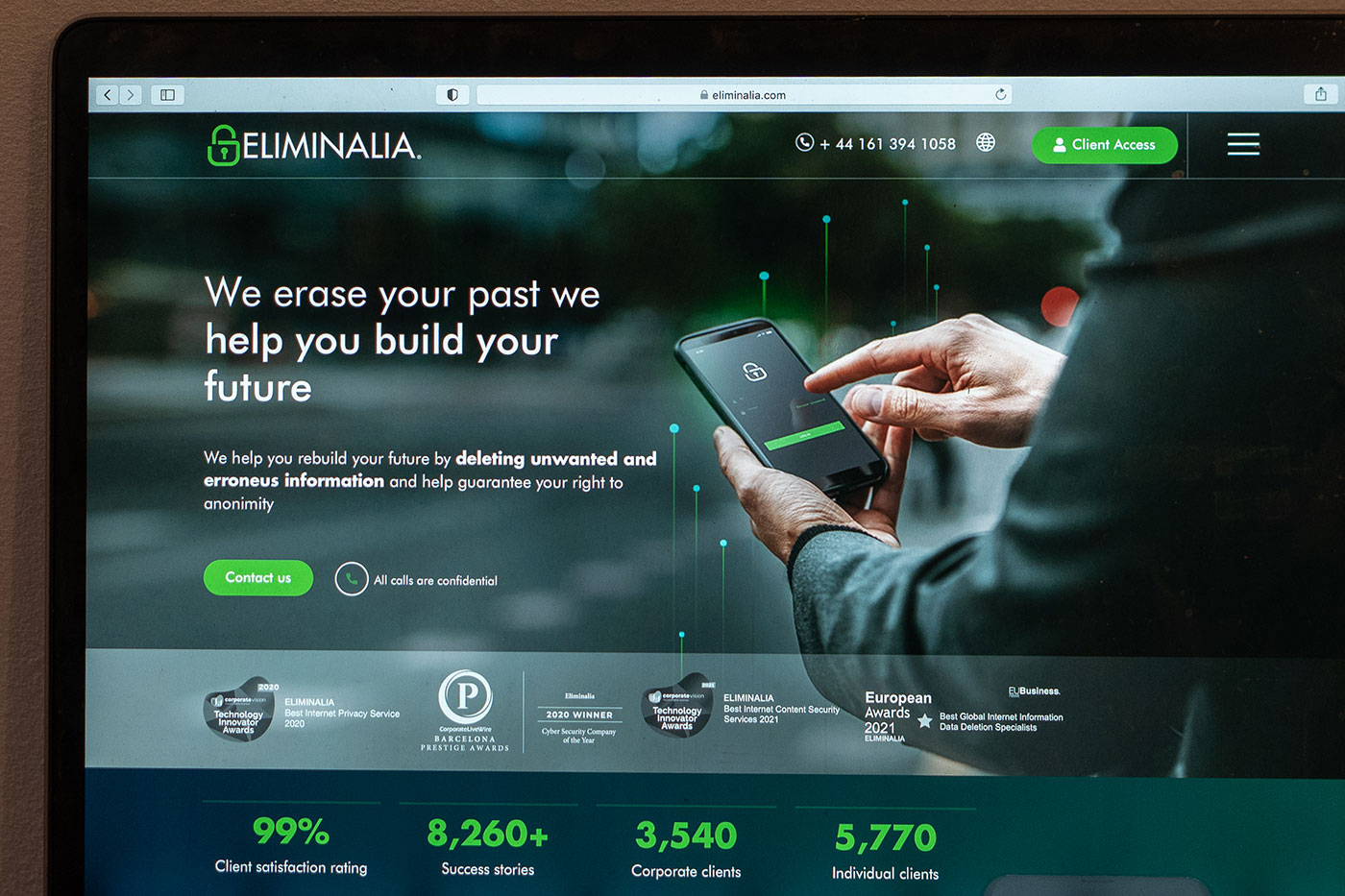
In 2015 Enea businessman Angelo Trevisan approached Eliminalia in connection with bankruptcy allegations. In 2017, he founded Eliminalia Holding Sa and several other firms to deal with Spaniards in Switzerland and Italy. In 2018, Trevisan stopped working with Eliminalia and renamed one of the entities under his control, Eliminalia Italia Srl, Ealixir (which also provides content removal services).
OCCRP journalists tried to contact the beneficiaries and potential customers of Eliminalia
Diego Jimenez Sanchez and Jose Maria Il Prados ignored our requests for comment.
Eliminalia’s lawyers declined to answer questions for the investigation, saying they would not disclose clients’ trade secrets. They accused journalists of bias: “The focus and content of most of the questions indicate a biased and unfair approach to work.”
A CBH lawyer said the bank’s management did contact ReputationUp, but were unaware of the company’s connection to Eliminalia. “CBH will not tolerate anyone engaging in illegal activities on their behalf,” he said in a statement.
Former Eliminalia partner Enea Angelo Trevisan did not respond to requests for comment.
Area SpA told OCCRP that it hired Eliminalia to legally remove material, many of which were untrue or contained unsubstantiated allegations against the company.
A lawyer for the Sierko family said his clients would not hire a company that uses unethical tactics in their work.
Malkhas Tetruashvili, Antonio Herrero Lazaro, Jose Mestre Fernandez and the Steinkeller brothers did not respond to requests for comment.
Spanish reputation laundering agency Eliminalia ran online influencer campaigns for clients in over 50 countries The leaked internal files of the Spanish company revealed, among other things, that Swiss bank CBH likely paid Eliminalia’s Italian partner to remove an OCCRP investigation into the bank’s ties to the offshore firms of Russian billionaire Alexei Krapivin. Spanish […]
Malkhas Tetruashvili, Antonio Herrero Lazaro, Jose Mestre Fernandez and the Steinkeller brothers did not respond to requests for comment.
